To see faculty sorted by specialty, please see here.
North America
Northeast
Tarren Andrews
Tarren Andrews is Assistant Professor in Ethnicity, Race, and Migration. She received her Ph.D. in English from the University of Colorado, Boulder and has graduate certificates in Native American and Indigenous Studies; Culture, Language, and Social Practice; and College Teaching. Her scholarship employs critical Indigenous studies to re-evaluate and re-narrativize stories of the early medieval North Atlantic (pre-1100). Her forthcoming book takes a transtemporal approach to law and literature, re-examining legal and literary artifacts from the early medieval North Atlantic—like the Domesday Book (England, ca. 1085), the Treaty of Alfred and Guthrum (England, ca. 878), and the Old English poem The Wife’s Lament (ca. 10th century)—alongside resonant documents and stories from Turtle Island (North America) including the Dawes Act of 1887, the Hellgate Treaty of 1859, and the Canadian Indian Act of 1876. This work seeks to find origins of Anglophone settler colonial logics as they are manifested in U.S. and Canadian settler law to better understand how we might imagine anticolonial futures. She has an essay forthcoming in Exemplaria comparing medieval settler and Indigenous approaches to slipstream sci-fi writing. Titled “Harold and Custer on the Slipstream,” this essay argues for the inherent hope offered by Indigenous storytelling. In addition to these projects, Dr. Andrews is also passionate about language revitalization and translation. She contributed the opening lines (ln. 1-12) in the 2021 translation of Beowulf by All. The citation for this “reservation translation” includes the Flathead Indian Reservation where Tarren grew up, which she credited as a co-author to honor the relationship between land and language. Dr. An=drews is the assistant medieval editor for The Sundial, a public-facing publication venue hosted by the Arizona Center for Medieval and Renaissance Studies.
tarren.andrews@yale.edu
Herbert Broderick
Herbert Broderick is an art historian, specializing in Old Testament iconography from the early medieval British Isles. His most recent book is Moses the Egyptian in the Illustrated Old English Hexateuch (University of Notre Dame Press, 2017).
herbert.broderick@lehman.cuny.edu
Patricia Dailey
Associate Professor of English and Comparative Literature at Columbia University, she is the author of Promised Bodies: Time, Language, and Corporeality in Medieval Women’s Mystical Texts (Columbia University Press, 2013) Her current book project, In Parentheses, examines the status of the literary in early medieval English poetry. She is working on second book project on trees and their relation to the sublime in early medieval England. She is the co-editor, with Veerle Fraeters, of A Companion to Hadewijch (forthcoming, Brill). Articles include, “The Elemental Sublime” in the Oxford Handbook of the Sublime (forthcoming), “ Skies in a Room,” Co-authored with Sandro Marpillero in Vespers 7 (forthcoming), “Riddles, Wonder, and Responsiveness in Anglo-Saxon Literature,” in the Cambridge History of Early Medieval English Literature 500-1150 (2012); “The Body and its Senses” and “Time and Memory” in the Cambridge Companion to Christian Mysticism (2012); “Children of Promise: The Bodies of Hadewijch of Antwerp,” Journal of Medieval and Early Modern Studies (Spring, 2011); and “Questions of Dwelling in Anglo-Saxon Poetry and Medieval Mysticism: Inhabiting Landscape, Body, Mind,” New Medieval Literatures (vol 8, 2006). She is the creator of the Colloquium for Early Medieval Studies (formerly the Anglo-Saxon Studies Colloquium, co-founded with Hal Momma, Stacy Klein, and Kathleen Davis).
pd2132@columbia.edu
Daniel Donoghue

Daniel Donoghue is a specialist on Old and Middle English, with a particular interest in the literary and intellectual history of early Medieval England, and chairs the Medieval Studies events and research committee. His recent publications include Lady Godiva: A Literary History of the Legend (Blackwell, 2003), Old English Literature: A Short Introduction (Blackwell, 2004), and How the Anglo-Saxons Read Their Poems (University of Pennsylvania Press, 2018).
dgd@wjh.harvard.edu
Jay Gates

Jay Paul Gates graduated from Oberlin College in 1999. He took his M.A. and Ph.D. in English from the University of Wisconsin-Madison in 2007 and taught at Purdue University before coming to John Jay. His areas of specialization are Anglo-Saxon and Old Norse-Icelandic literature and language and the effects of Anglo-Scandinavian cultural contact (when Vikings meet clerics), especially as represented in legal rhetoric. Outside of his immediate research, he has an abiding affection for dead languages–including Old French and Old Saxon–allegory, and manuscript studies. He is currently working on a manuscript and several side projects concerning Cnut’s kingship and Anglo-Scandinavian court.
jgates@jjay.cuny.edu
Holger A. Klein

Holger A. Klein was educated in Art History, Early Christian Archaeology, and German Literature at the universities of Freiburg im Breisgau, Munich, London, and Bonn. His research focuses on Late Antique, Early Medieval, and Byzantine art and architecture, more specifically, on the cult of relics, reliquaries, and issues of cultural and artistic exchange. Professor Klein joined Columbia University as an Assistant Professor in 2000, was promoted to tenured Associate Professor in 2006, and to Professor in 2011. In 2015–16, he held an Alliance Visiting Professorship at the Université Paris I Panthéon-Sorbonne and taught Columbia undergraduates at Reid Hall. He was named The Lisa and Bernard Selz Professor of Medieval Art History in 2018. At Columbia University, Professor Klein has served as Director of Art Humanities (2003; 2007–09), Director of Graduate Studies (2010–12; 2017–20), Chair of the Department of Art History and Archaeology (2012–15), inaugural Director of the Sakıp Sabancı Center for Turkish Studies (2017–21), and Faculty Director of the Casa Muraro Library and Research Center in Venice.
In addition to his academic work, Professor Klein previously held an appointment as the Robert P. Bergman Curator of Medieval Art at the Cleveland Museum of Art (2004–07) and continued to oversee the reinstallation of the museum’s renowned collection of Medieval and Byzantine art until 2010. His work as a curator includes various international loan exhibitions, among them Restoring Byzantium. The Kariye Camii in Istanbul and the Byzantine Institute Restoration (Wallach Art Gallery, 2004; Pera Museum, 2007), Medieval Treasures from The Cleveland Museum of Art (Bayerisches Nationalmuseum/The J. Paul Getty Museum, 2007–08) and Treasures of Heaven. Saints, Relics and Devotion in Medieval Europe (Cleveland Museum of Art/Walters Art Museum/British Museum, 2010–11) and The Way We Remember: Fritz Koenig’s Sphere, the Trauma of 9/11, and the Politics of Memory (Wallach Art Gallery, 2021).
Professor Klein is the recipient of several awards and prizes, including the 50th annual Mark Van Doren Award for Teaching (2011), which honors a Columbia professor’s commitment to undergraduate instruction as well as inspiring leadership; the Lenfest Distinguished Faculty Award (2012), which recognizes unusual merit as a teacher of undergraduate and graduate students as well as outstanding scholarship; and the Wm. Theodore de Bary Award for Distinguished Service to the Core Curriculum (2014). He was named a Distinguished Research Fellow of Sabancı University in 2020.
hak56@columbia.edu
Stacy S. Klein

Stacy S. Klein is an Associate Professor of English at Rutgers University, where she teaches courses on early English literature, poetry, gender, and sexuality. She is the author of Ruling Women: Queenship and Gender in Anglo-Saxon Literature (University of Notre Dame Press, 2006), and is currently completing a monograph entitled The Militancy of Gender and the Making of Sexual Difference in Early English Literature, ca. 700-1100 AD. Klein has published numerous articles on Old English language and literature, gender and the history of sexuality, premodern disability, birds, environmental humanism, and aesthetics. Her newest book project investigates childhood and human development in early English literature; its working title is Beyond Biology: Forms of Parenting from Beowulf to Modern Family.
ssklein@english.rutgers.edu
Isabelle Levy
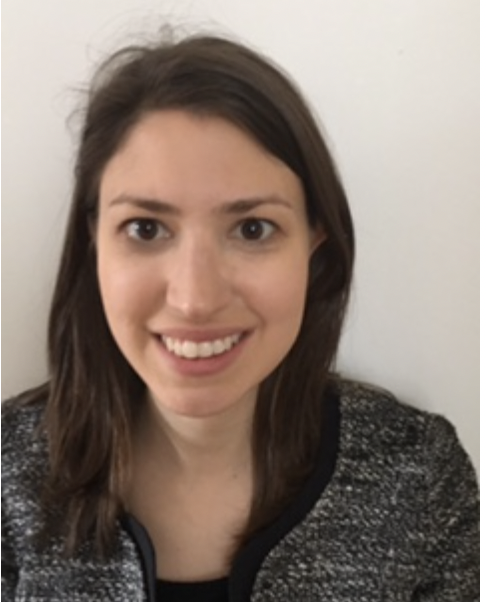
Isabelle Levy (BA Columbia; PhD Harvard) is Lecturer and Academic Program Director at the Institute for Israel and Jewish Studies, Columbia University. She has held positions as fellow at the Italian Academy for Advanced Studies in America and the Stanley A. and Barbara B. Rabin Postdoctoral Research Fellow at the Institute for Israel and Jewish Studies, both at Columbia. She was previously a Fulbright fellow in Spain. She is the author of Jewish Literary Eros: Between Poetry and Prose in the Medieval Mediterranean (Indiana University Press, 2022) and has published articles in Medieval Encounters; La Corónica; A Comparative History of Literatures in the Iberian Peninsula, Volume II; and Digital Dante. Her research specializes in Hebrew and Judeo-language literary traditions of the medieval Mediterranean in the comparative context of Arabic and Romance counterparts.
icl2001@columbia.edu
Haruko Momma

Haruko Momma is Silver Professor and Professor of English at New York University, where she teaches Old English and medieval culture and literature. Her areas of interest include Old English language and literature; early medieval culture of religion mainly in England; history of the English language; philology and the history of the discipline.
hal.momma@nyu.edu
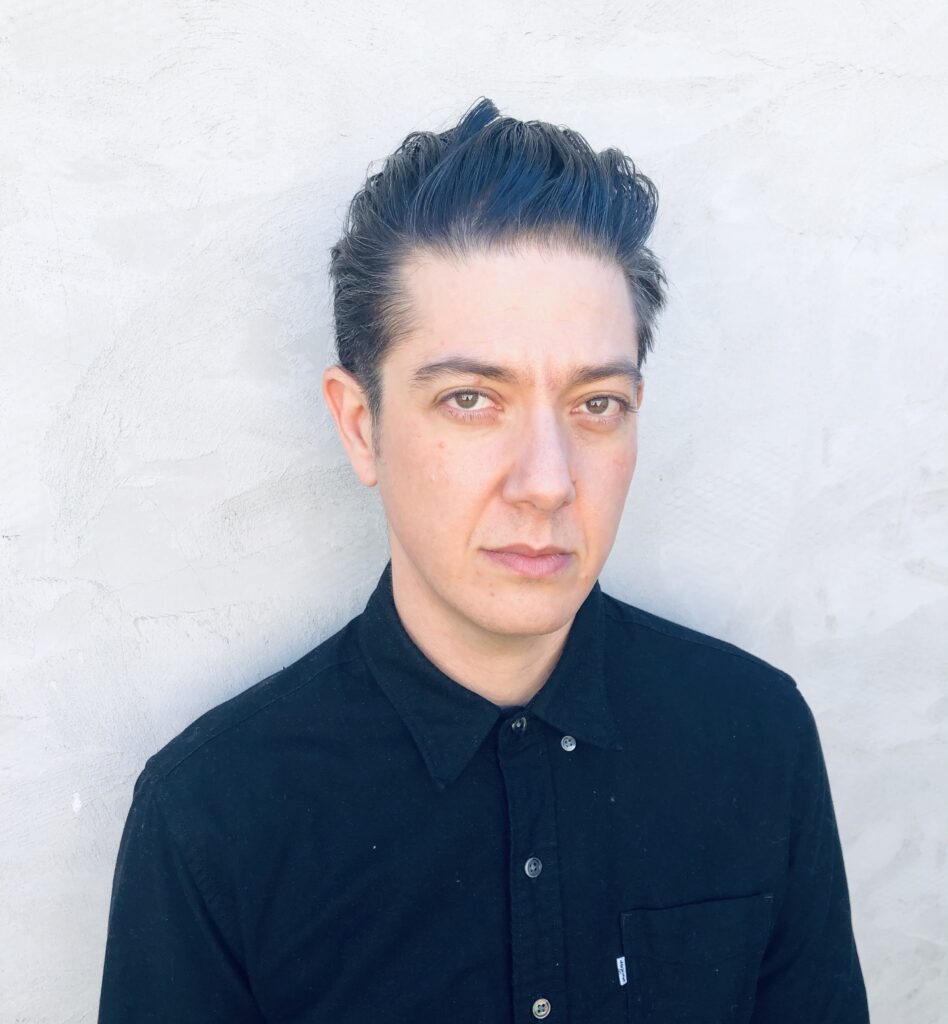
Miller Oberman published the poetry collection “The Unstill Ones” (Princeton University Press, 2017). He teaches writing at Eugene Lang College of Liberal Arts at the New School.
oberm412@newschool.edu
Thomas O’Donnell

Thomas O’Donnell is Associate Professor of English and Medieval Studies at Fordham University, where he was formerly the Co-Director of Comparative Literature. His research focuses on medieval languages, writing, performance and concepts of community, especially among monks and nuns in southern Britain. His graduate and undergraduate teaching, meanwhile, revolves around the contact zones created by different religions, polities, literatures, and languages during the early and central Middle Ages.
todonnell12@fordham.edu
Haruo Shirane
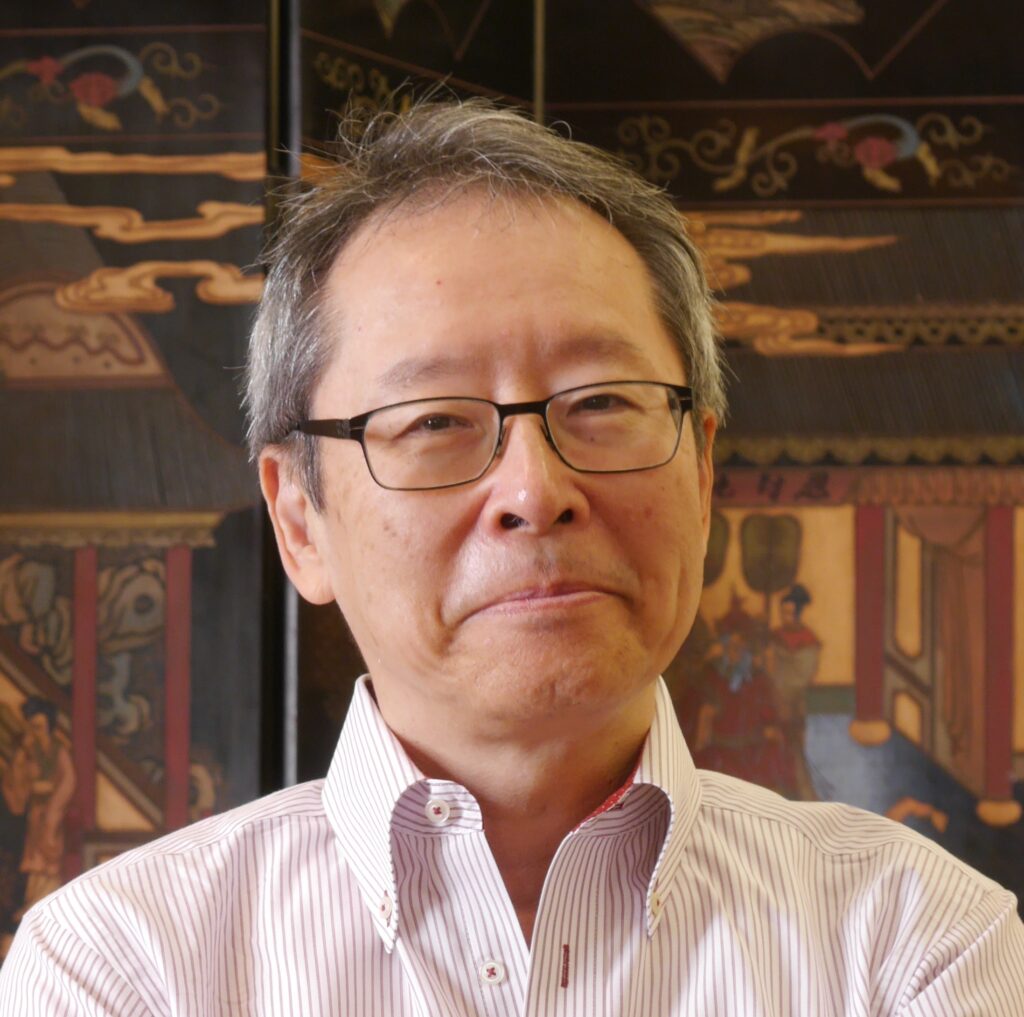
Haruo Shirane’s current research interests lie at the intersection of Japanese culture, religion, and the environment, particularly animals and trees. His area of specialization is Japanese literature and culture, especially premodern fiction, poetry, performance, and visual culture. He is currently finishing a book called Seeing the Unseen: Demons, Gods, and Other Worlds in Japan. Another book project Performance, Media, and Intermediality in Japan explores the complex relationships among orality, performance, and print culture in Japan.
hs14@columbia.edu
Emily Thornbury
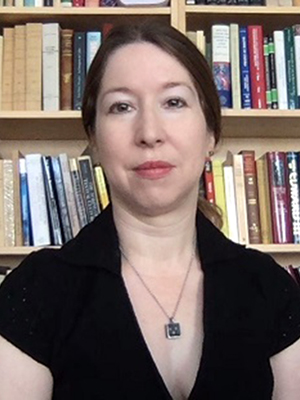
Emily V. Thornbury is a scholar of Old English and Anglo-Latin literature, with a particular interest in early theories of aesthetics. She joins the English department from the University of California at Berkeley. Her first book, Becoming a Poet in Anglo-Saxon England (Cambridge UP, 2014) explored how and why people set about composing verse in England prior to the Norman Conquest. Whether in English or Latin, the Anglo-Saxons’ poetry was enmeshed in the social circumstances in which it was composed, and reveals the ways that communities—or their absence—continually shaped and reshaped poets’ ideas of form and their expectations for what their art could achieve. Presently, Thornbury is working on a book called The Virtue of Ornament, which traces the nonclassical, largely untheorized aesthetic principles of Anglo-Saxon art and literature through a series of productive encounters with Classical forms. Ornament—understood in Classical aesthetics mainly as an extraneous overlay or elaboration, but by Anglo-Saxons as a transformative act—provides an entryway into a world of thought in which surface and depth, proportion, symmetry, and value itself had very different meanings. By understanding how ornament worked for the Anglo-Saxons, we can glimpse alternative ways of reading, seeing, and understanding art.
emily.thornbury@yale.edu
Eric Weiskott

Eric Weiskott is Professor of English at Boston College, where he teaches and writes about poetry and poetics. He is the author of Meter and Modernity in English Verse, 1350-1650 (University of Pennsylvania Press, 2021) and English Alliterative Verse: Poetic Tradition and Literary History (Cambridge University Press, 2016), which won the 2018 English Association Beatrice White Prize. With Irina Dumitrescu, he edited The Shapes of Early English Poetry: Style, Form, History (Medieval Institute Publications, 2019). He edits the Yearbook of Langland Studies with Alastair Bennett and Katharine Breen. His current monograph project, Unheard Melodies: Apophatic Poetics in English Literature, concerns the paradoxical power of English literature, from Beowulf to Claudia Rankine, to represent what literature cannot represent: novels no one can read, lyrics no one can hear, syllables no one can pronounce, spaces no one can inhabit, experiences no one can have, and more. A separate series of notes and articles in progress reconsiders the Latin poetry of John Gower.
weiskott@bc.edu
Wesley Chihyung Yu
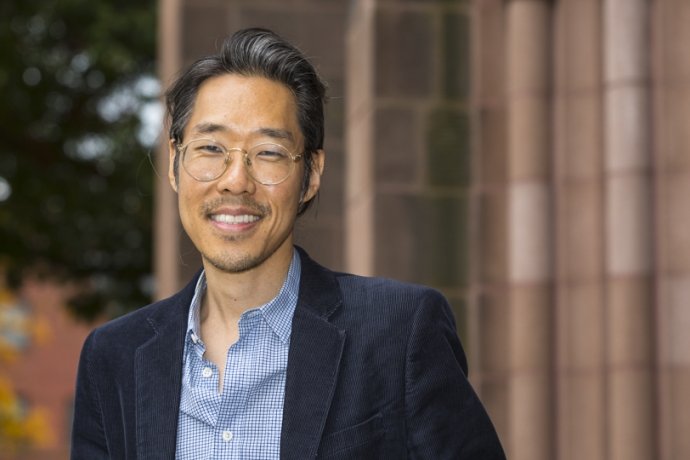
Wesley Yu is an associate professor of English at Mount Holyoke College. He regularly teaches courses on Old and Middle English literary genres and authors. In both his writing and teaching, Yu is interested in the range of ways that poetic traditions can contextualize our understanding of medieval perception and reasoning. His research inquires about the possible contributions of poetics to shifts in intellectual history, given the interdisciplinary nature of the medieval language arts. Taken in coordination with each other, how do poetics and argumentation together offer up a sense of a medieval epistemology? Yu’s work studies the medieval trivium, with attention to rhetoric and dialectic especially, to ask what the medieval discourse about language may suggest about the shared relationships between argumentation and poetic craft. He has written on early treatments of allegory and on literary uses of argumentation in the Middle Ages.
wyu@mtholyoke.edu
Midwest
Martin Foys
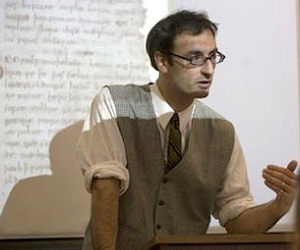
Martin Foys is the Nancy C. Hoefs Professor of English at the University of Wisconsin-Madison. He was previously a Senior Lecturer in pre-1300 English at King’s College London, and has held posts at Drew University, Hood College and Florida State University. He is a past Executive Director for the International Society for the Study of Early Medieval England (formerly ISAS), and is the current Director of Graduate Studies at UW-Madison. He currently directs the Old English Poetry in Facsimile project (2018-) a ten-year initiative to re-edit the entire corpus of Old English poetry to digital facsimiles, and Digital Mappa, an open-source platform for digitally annotating, linking and publishing collections of digital images and texts, among numerous other digital humanities initiatives.
Beginning with the publication of The Bayeux Tapestry Digital Edition (2003, 2013) and then Virtually Anglo-Saxon: Old Media, New Media, and Early Medieval Studies in the Late of Print (2007), Martin’s scholarship has continued to explore pre- and post-Conquest England, with special attention to the intersection of literature and other visual, material, technological and media modes of cultural expression – e.g. maps, tapestries and sculpture, and, most recently, more ephemeral and abstracted aspects of early medieval English expressive production – auditory culture, technological alteration of bodies, transliteracies and ecologies of media forms, and the process of temporal decay or obsolescence, with much digital humanities theory and praxis in the mix.
Recent scholarship includes work on widows, witchcraft and medieval real estate deals (2018), editing a digital cohort of early medieval maps for the British Library (2018), the remanence of medieval media, human bodies and digital technology (2018), identifying three Anglo-Carolingian texts previously unknown in pre-Conquest England (2017), a bilingual edition (Latin and Old English) of an early medieval treatise on bells (2017-2019), Old English riddles and anxieties of knowledge (2018), media archaeology and manuscript studies (2015), and a sensual philology for early medieval England (2014).
foys@wisc.edu
Joey McMullen
Joey McMullen is an Assistant Professor in the Department of English at Indiana University, Bloomington. His research employs ecological criticism and the study of place to highlight the role of the landscape in the literature of the medieval North Atlantic, especially that of Ireland, England, and Wales. He is also broadly interested in multilingualism and networks of literary exchange within the British Isles and Ireland.
Renée Trilling
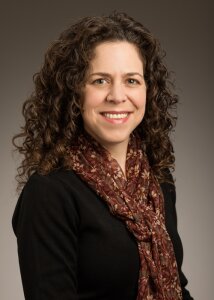
Renée R. Trilling is Associate Professor of English and Director of the Program in Medieval Studies at the University of Illinois at Urbana-Champaign. She is the author of The Aesthetics of Nostalgia: Historical Representation in Old English Verse (Toronto, 2009; winner of the International Society for the Study of Early Medieval England’s Best First Book Award) and the Oxford Bibliography of Old English Literature and Critical Theory (Oxford, 2016). She is also Editor for Old English of JEGP: Journal of English and Germanic Philology, published by the University of Illinois Press. Her research has been supported by the Mellon Foundation, the National Endowment for the Humanities, the Illinois Program for Research in the Humanities, and the Center for Advanced Study at Illinois. She has published articles on Beowulf, Wulfstan the Homilist, Ælfric’s hagiography, vernacular historiography, wisdom poetry, and early medieval medicine, focusing on issues of gender, materiality, nostalgia, and literary form. Her current work draws on posthumanist trends in neuroscience, quantum physics, and philosophy to explore the role of materiality in early medieval notions of subjectivity.
trilling@illinois.edu
Pacific
Catherine Karkov
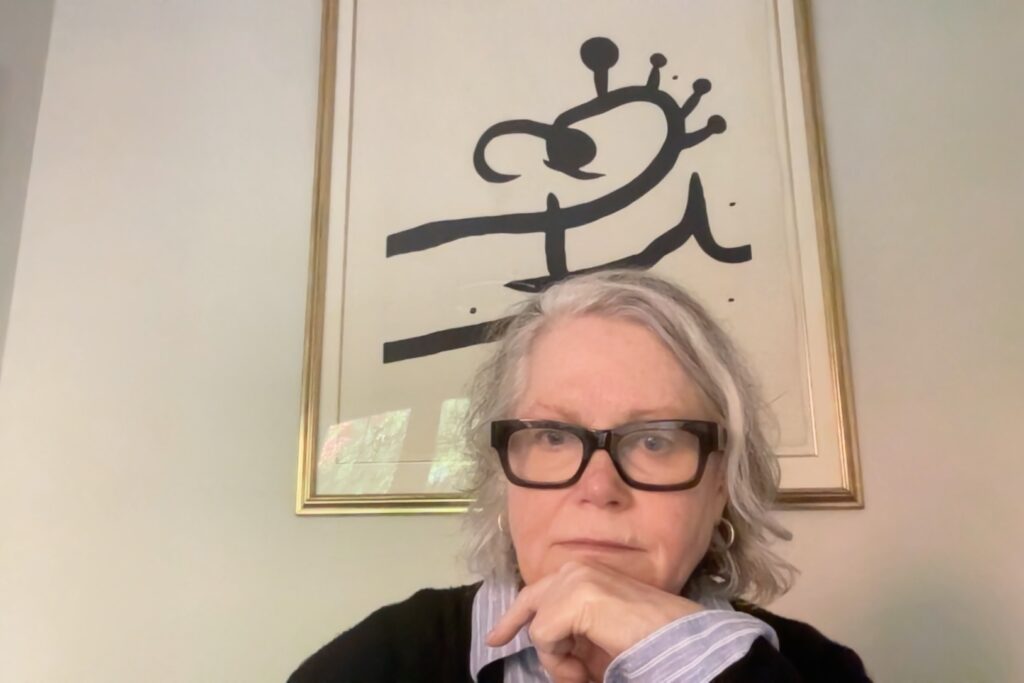
Catherine Karkov’s research focuses on questions of the postcolonial, materiality, and eco-criticism in relation to early medieval England. She is the author of Text and Picture in Anglo-Saxon England: Narrative Strategies in the Junius 11 Manuscript (2001), The Ruler Portraits of Anglo-Saxon England (2004), The Art of Anglo-Saxon England (2011), Imagining Anglo-Saxon England: Utopia, Dystopia, Heterotopia (2020), and Art and the Formation of Early Medieval England (2022), as well as many articles and chapters on the material culture of early medieval England. Her research has been supported by the National Endowment for the Humanities, the British Academy, and the Arts and Humanities Research Council. She is currently working on books on sound and voice in early medieval English art and on whales, imperialism, and the Franks Casket.
karkovc@gmail.com
Asa Simon Mittman

Asa Simon Mittman (Professor of Art & Art History, California State University, Chico), is author of Maps and Monsters in Medieval England (2006), co-author of Inconceivable Beasts: The Wonders of the East in the Beowulf Manuscript (2013), and author and co-author of many articles on monstrosity and marginality in the Middle Ages, including pieces on race in the Middle Ages, Satan, and anti-Semitism. He edited the Research Companion to Monsters and the Monstrous (2012), and co-edited Monstrosity, Disability, and the Posthuman in the Medieval and Early Modern World (2019) and Demonstrare, a two-volume Monster Studies reader (2018). He also co-curated Medieval Monsters: Terrors, Aliens, Wonders at The Pierpont Morgan Library & Museum (2018).
asmittman@csuchico.edu
Elaine Treharne

Elaine Treharne is the Roberta Bowman Denning Professor of Humanities, Professor of English, and, by courtesy, Professor of German Studies and of Comparative Literature at Stanford University, California, where she is also the Robert K. Packard University Fellow in Undergraduate Education, a Fellow of the Clayman Institute for Gender Studies, and Director of Stanford Text Technologies. She has published some thirty-five books (most recently, Perceptions of Medieval Manuscripts: The Phenomenal Book [OUP, 2021]) and seventy articles, focused principally on Early English literary cultures, manuscript technologies, and the history of the book. She has directed numerous funded projects, such as the AHRC-funded Production and Use of English Manuscripts 1060 to 1220 and the NEH-funded Global Currents. She is affiliate faculty of the Stanford’s AI Institute, the School of Sustainability, and the Europe Center, and she is currently researching three new projects: a revised edition of Neil Ker’s Catalogue of Manuscripts Containing Anglo-Saxon (with Dr Stewart Brookes); the sustainability and preservation of the human record; and ‘Medieval Networks of Memory’ (with Dr Mateusz Fafinski). She teaches Medieval Literature, Archive and Manuscript Studies, and the History of Text Technologies.
treharne@stanford.edu
Erica Weaver
Erica Weaver is Assistant Professor of English at the University of California, Los Angeles, where she is currently finishing a book about the role of distraction in the development of early medieval literature and literary theory, particularly during the tenth-century monastic “correction” movement traditionally known as the English Benedictine Reform. She is also co-editor, with A. Joseph McMullen, of The Legacy of Boethius in Medieval England: The Consolation and its Afterlives (ACMRS, 2018) and, with Daniel C. Remein, of Dating Beowulf: Studies in Intimacy (Manchester University Press, 2020).
ericaweaver@humnet.ucla.edu
Rocky Mountain
Donna Beth Ellard
Donna Beth Ellard is an Associate Professor in the department of English and Literary Arts at the University of Denver. She specializes in Old English poetry and early medieval literature, but her interests range widely (e.g. she is currently completing a B.A. in Biology). In addition to Donna Beth’s monograph, Anglo-Saxon(ist) Pasts, PostSaxon Futures, her essays have appeared journals such as Exemplaria, postmedieval, and Rethinking History. She is a collaborator in the Disinventing Old English project.
donna.ellard@du.edu
Tiffany Beechy
Tiffany Beechy is Professor of English at the University of Colorado Boulder, where she teaches courses in Old English, early medieval literature and culture, and transhistorical poetry and poetics. Her most recent book is Aesthetics and the Incarnation in Early Medieval Britain: Materiality and the Flesh of the Word (Notre Dame, 2023). Beechy is interested in fostering unconventional approaches to medieval studies (such as Indigenous medieval studies and work across the early and late period divide) and in promoting and supporting promising work wherever it is being produced, which is to say, beyond the confines of the elite medieval studies archipelago.
tiffany.beechy@colorado.edu
Canada
Stephen Yeager
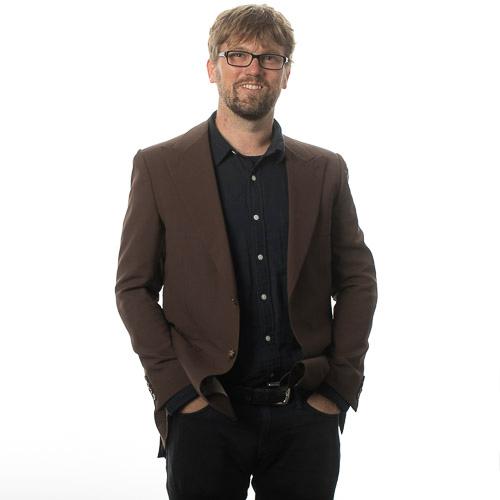
Stephen Yeager is a Professor of English Literature at Concordia University in Montreal. He is the co-editor with Thora Brylowe of the open-access volume Old Media and the Medieval Concept: Media Ecologies Before Early Modernity (Concordia University Press, 2021), and the principal investigator of a SSHRC-funded project “The Global Far North 500-1500 CE.” His most recent articles have appeared in the journals English Language Notes, Critical Inquiry, and Gothic Studies. His research on Old and Middle English literature investigates the intersections between literary and legal formalisms, concepts of mediality, medievalisms in digital cultures, and settler-colonial historiographies.
stephen.yeager@concordia.ca
Asia
China
Kaifan Yang
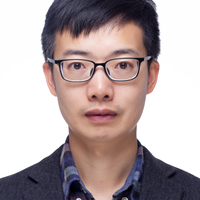
Associate Professor of English Language and Literature, Director of English Department, Wenzhou University, China. He received his PhD in English Language and Literature from East China Normal University in 2014, and was a visiting PhD student at Cornell University in the academic year of 2010-2011. His research interests include Old English literature, time and literature, and theories of literary criticism.
kfyang@wzu.edu.cn
Europe
Germany
Solveig Marie Wang
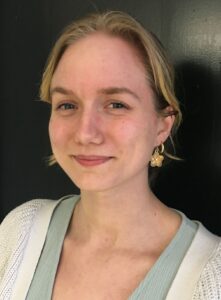
Solveig Marie Wang is an interdisciplinary researcher of medieval Fennoscandia at the University of Greifswald. Solveig defended her PhD thesis ‘Decolonising Medieval Fennoscandia: Norse-Saami Relations in the Medieval Period’ at the University of Aberdeen in 2021, which is due to be published with DeGruyter in 2023. Solveig is the managing editor of the interdisciplinary and Open Access periodical Apardjón. Her main research interests lie in the medieval north, with a specific focus on the historiography of Indigenous peoples, postcolonial frameworks, cross-cultural contact and concepts like fluidity. At the University of Greifswald, she is part of the project ‘Mission Before Colonisation: A Reassessment of Religious Contact in Greenland and Sápmi, 1000-1550’.
Gwendolyn Knight
United Kingdom
Mike Bintley
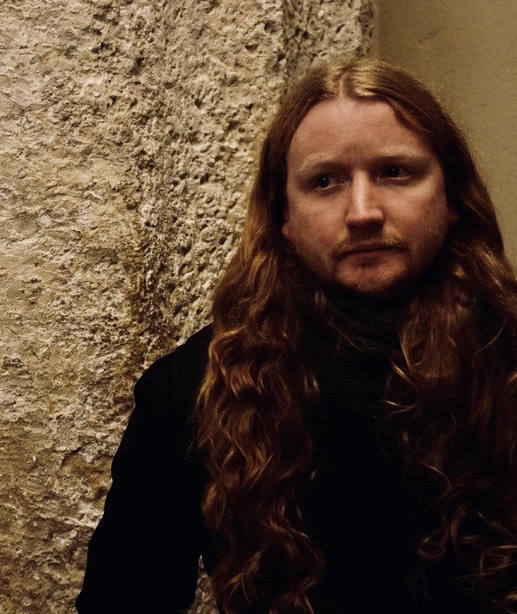
Mike Bintley is Senior Lecturer in Early Medieval Literature and Culture at Birkbeck, University of London, and series editor of Nature and Environment in the Middle Ages for Boydell. His research is transdisciplinary, focusing on the intersections of textual and material culture in relation to landscapes and environment, trees and plant-life, buildings and settlements, and minds and matter. He is author ofTrees in the Religions of Early Medieval England (Boydell, 2015), and Settlements and Strongholds in Early Medieval England: Texts, Landscapes, and Material Culture (Brepols, 2020), and coauthor of Andreas: An Edition (Liverpool University Press, 2015). Mike is currently coediting The Surrounding Forest with Dr Pippa Salonius, and coauthoring Landscapes and Environments of the Middle Ages with Dr Kate Franklin.
michael.bintley@bbk.ac.uk
Timothy Bourns
Megan Cavell
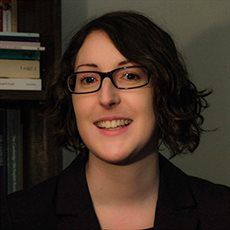
Megan Cavell is Associate Professor in the Department of English Literature at the University of Birmingham. She works especially on Old and early Middle English and Latin literature, with a focus on riddles and animal studies. She is the author of Weaving Words and Binding Bodies: The Poetics of Human Experience in Old English Literature (University of Toronto Press, 2016) and The Medieval Bestiary in English: Texts and Translations of the Old and Middle English Physiologus (Broadview Press, forthcoming). She is the co-editor, with her collaborator Jennifer Neville, of Riddles at Work in the Early Medieval Tradition: Words, Ideas, Interactions (Manchester University Press, 2020), and runs The Riddle Ages website. She is currently spending most of her time thinking about Boniface’s Latin riddles on the one hand and early medieval predators on the other.
M.C.Cavell@bham.ac.uk
Josh Davies

Josh Davies is Senior Lecturer in Medieval Literature in the English Department at King’s College London. He works primarily on Old English and early medieval culture and is particularly interested in questions of translation, reception and memory. He is the author of Visions and Ruins: Cultural Memory and the Untimely Middle Ages (Manchester University Press, 2018). With Nadia Altschul he co-edits the series Arc Medievalist at Arc Humanities Press. With Clare Lees he is co-editor of the Yearbook of English Studies 2022 on ‘Literature to 1200’.
joshua.davies@kcl.ac.uk
James Paz
James Paz is Lecturer in Early Medieval English Literature at the University of Manchester. He is the author of Nonhuman Voices in Anglo-Saxon Literature and Material Culture (2017) and the co-editor of Medieval Science Fiction (2016). He has also published articles on texts and topics such as: unreadable things in Beowulf; performing scientia in the Old English charms and dialogues of Solomon and Saturn; translating The Order of the World slowly; mind, mood and meteorology in the Exeter Book ‘storm’ riddles; Wayland the Smith and the rebellious power of craft; and Eilmer the ‘flying monk’ of Malmesbury. He is one of the editors of the Manchester Medieval Literature and Culture book series.
james.paz@manchester.ac.uk
Christopher Yocum
I graduated from the University of Edinburgh in 2009 with a PhD in Celtic Studies. From there, I published on medieval Irish Wisdom Literature and Digital Humanities topics in Celtic Studies. Additionally, I have worked on the technical aspects of the Dictionary for Irish mainly from Old and Middle Irish sources. My interests currently are in semi-structured databases and medieval Irish genealogical corpora.
cyocum@elotroalex
Czech Republic
Lucie Korecka

I work at Charles University in Prague, Faculty of Humanities. I focus on research of cultural concepts in Old Norse texts and Nordic folklore. I have published monographs on the Sturlung Age from the perspective of cultural memory studies, on the Old Norse conceptualization of magic, and on the crossing of boundaries in the post-classical sagas of Icelanders and Icelandic folktales, as well as articles on the transformations of attitudes to fate and morality in the medieval North and on the motif of magic in Faroese ballads. I translate Old Norse, Icelandic, and Faroese texts into the Czech language.
lucy.korecka@seznam.cz